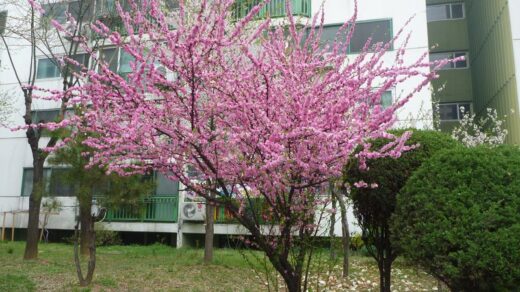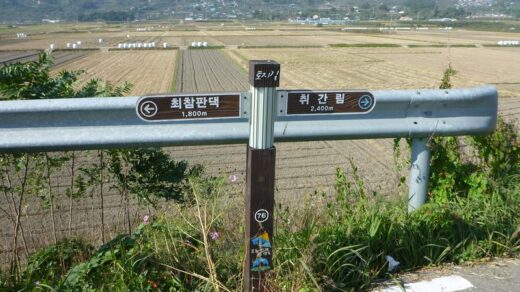
KBC Intern Jared Muloongo interviewed reporter Jamie Lee as part of his research in preparing the report “A Map to a Career in Korea: What You Need to Know!”. The following is the original Q&A for the interview.
For links to this and other interviews in the series, visit Supplementary Materials for A Map to a Career in Korea: What You Need to Know!”
Ten Keys to Master that Will Put You in Front When Finding a Job in Korea
1. Does GPA / great academic results matter when applying for a job in Korea?
It may depend on what type of industry you are applying to. Education boards have a limitation called a GPS cut line. The Seoul Metropolitan Office of Education has a very strict cutline and will not proceed with an interview if your GPS score does not meet a certain score. But for other industry GPS is not considered seriously.
2. Korea is big on ‘Woori’ so when hiring an individual does personality matter? What Kind of personality is needed to be able to work in a Korean firm?
Yes, personality is important. This factor however I believe applies to most countries. Every recruiter and hiring manager do not care to waste their time interviewing someone who demonstrated bad manners during an email correspondance. First impression begins at the communication stage not necessarily the face to face interview. In some cases, the hiring manager will also give a few points for evaluation to the front desk receptionist to see if the applicant has any bad habits or treats the receptionist down.
You will succeed if you are a positive person, if you can focus on the solution instead of complaining about the problems, if you are friendly and good with interpersonal communications that will be a plus since there will definitely be language barriers.
3. How does one get noticed or become visible to Hiring managers in Korea?
Knowing someone in the firm you are applying to is of course the best route. If this is not possible, get yourself acquainted with international recruiters (certified) working in Korea.
4. How does one utilize the network they gain wisely in order to gain a Job? Now that you have a network and you are maintaining it. What do you do?
This is more like a personal strategy so it should be led my your own instincts. But to share some examples :
One might apply to an online application of an open position, but include a recommendation letter signed with handwriting and that contains a contact number.
Ask your acquaintant to put in a few words for you that you submitted your resume to the ____whichever___ department for ___ position.
Or if you have recommendations on Linkedin that you are sure the applied company will be familiar with be sure to include a copy of a printed version of your Linkedin Profile including the recommendations.
Tell people that you are seeking a position. And directly ask for help. They may have heard of someone looking for someone or may later hear the news and remember that you were available.
5. What are some great resources to have and to use in gaining a job in Korea?
Use of international head hunters (recruiters). It only works best when you’ve had a face to face interview with the recruiter. Otherwise your resume will just be floating in a file full of competitors.
a. KBC is a Great resource how would you as a hiring manger look for potential candidates to hire?
I would send direct messages to people who I believe might know anyone in the field I am hiring for. I will also post them to twitter, facebook, linkedin and anything I can get a hold of. Not to mention recruiting websites.
b. How can potential candidates use a resource like KBC in your opinion to get noticed?
Mention that you are seeking a position, Write it in your bio. Tweet about it and direct message to anyone you think may help you. Keep spreading the word. And be prepared with a finished resume and good photo. The photo is important in Korea.
6. What kinds of resumes/ C.V’s get noticed in Korea?
Not too long, not too short. If the company you are applying to is a multinational firm with headquarters abroad, an English resume should be enough. Large Korean firms may request for a Korean version. But they won’t expect one from you if you are not Korean. Thus I recommend to prepare one only if you are required to submit. Never send in a Korean translated version only
a. Which people should be reading my resumes in order to help me gain an advantage in Korea?
Recruiters, HR Directors, Department Managers if they will be your supervisor.
b. What things can one do to their Resume / CV to get noticed?
I receive a lot of resumes from candidates from abroad. What I look for in a resume is to see if it’s relevant. Does your objective (if you’ve written one) match the position? Are you saying the write things in your initial email and cover letter. Are you checking your grammar and writing as professional as possible. Or are you trying too hard to sound like you’re not desperate or writing to casually. Be sure to make your achievements outstand in your application. If you have a preferred certification, be sure to highlight this in the beginning and even include an attachment of scanned copy. You’re going to be asked for a copy anyways, why not save the administrator time. And help rid any possible suspicions.
7. There is no substitute for practice before an interview, what can individuals expect to be asked when applying for a job in Korea?
This really depends on who you are being interviewed by and what type of position you are applying to. I could probably write a 2-3 pages long article just on this topic. If I were to generalise the Korean market and narrow it down to what type of questions are normally asked to Koreans applying to Korean firms..the questions are probably universal but may include Q to check your leadership, communication skills, adaptability, and understanding of the role:
- What makes you a strong candidate for this position?
- Tell me about your understanding of the position and what skills are required.
- Tell me about a problem you had in the office and how you overcame it.
- Do you drink? How much do you drink? (I wonder if they still ask this question). It was one of the most popular yet most controversial)
- Tell me about yourself (what is your personality like, what do other say about you?
- Do you work well under pressure? Give us an example?
Five tips to remember: Practice in advance. Make a Q&A sheet. Ask your recruiter to provide you Q&A and do’s and don’ts for interviews. Research the web. Look at other peoples Linkedin profiles who are working in position you wish to work in the future and get a peek at what they actualy do. What kind of achievements do they highlight?
8. What positions should individuals seek to apply to when they are trying to get into the Korean job market? Any recommendations for individuals with very little work experience?
This question is too general. If you’re asking the trend, I’d say that there is more possibility to get jobs in IT or Education. Jeju island has several international schools that may hire teachers or administrators from around the world.
You can apply to ESL teaching jobs as your first position if you do not have experience. You may apply as long as you have a BA in any field.
9. We know work experience is a factor in getting hired, when individuals have little or no experience what can they include in their Resumes to show that they have the necessary skills to make up for the lack of work experience?
This goes for any country. Any volunteer experience at a community center or sunday school teaching or leadership experience such as working as a football coach in high school, as a librarian or tutoring are also considered in many cases. But be careful to understand that working at a bar or as a dj at a club can get you off the potential list of resumes by managers in Korea. Koreans are also keen on certifications if you don’t have experience.
10. What things should foreigners expect to find when they get a job in Korea? The reason behind the question is to gain an extra advantage by being able to show a unique understanding of the Korean work environment.
I could also write a book on this section. There is a saying in Korean for salarymen, that you have to leave your gallbladder at home when you go to work. I can’t really translate this into English, but just by what they’re saying you kind of get the idea that social life in Korea is difficult.
This doesn’t really go for International Firms, but for Korean firms…you can often see..(and this also does not apply to ESL teachers in Korea)
Staff not being able to leave the office because their supervisor is still working.
They are careful to ask for their holiday. And think that not using all your leave is being loyal to the company. So if you do use your holiday you should consider yourself lucky.






